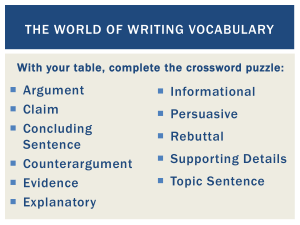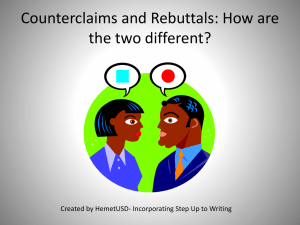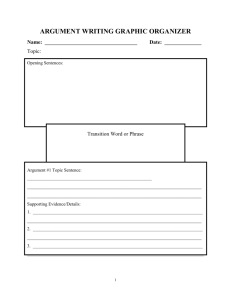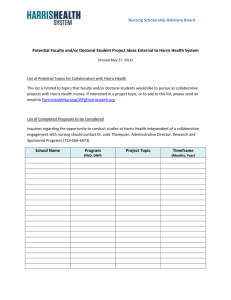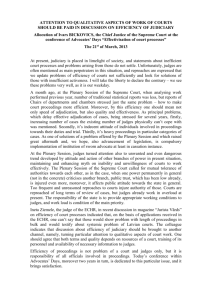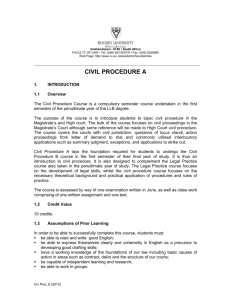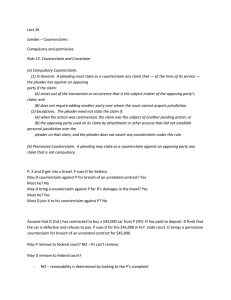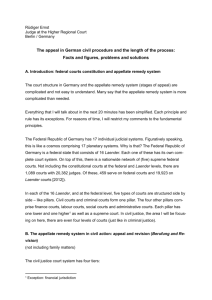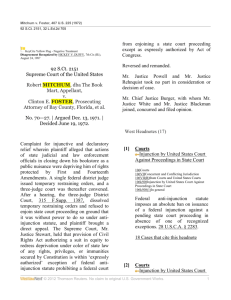Cost Orders - Harris Cost Lawyers
advertisement
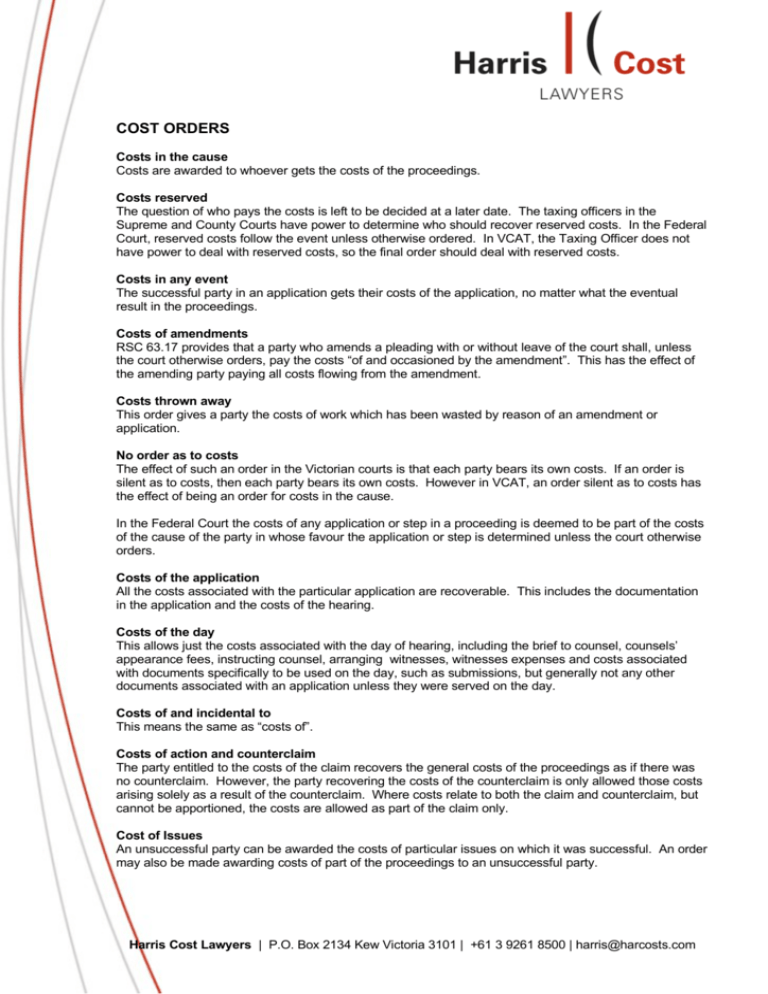
COST ORDERS Costs in the cause Costs are awarded to whoever gets the costs of the proceedings. Costs reserved The question of who pays the costs is left to be decided at a later date. The taxing officers in the Supreme and County Courts have power to determine who should recover reserved costs. In the Federal Court, reserved costs follow the event unless otherwise ordered. In VCAT, the Taxing Officer does not have power to deal with reserved costs, so the final order should deal with reserved costs. Costs in any event The successful party in an application gets their costs of the application, no matter what the eventual result in the proceedings. Costs of amendments RSC 63.17 provides that a party who amends a pleading with or without leave of the court shall, unless the court otherwise orders, pay the costs “of and occasioned by the amendment”. This has the effect of the amending party paying all costs flowing from the amendment. Costs thrown away This order gives a party the costs of work which has been wasted by reason of an amendment or application. No order as to costs The effect of such an order in the Victorian courts is that each party bears its own costs. If an order is silent as to costs, then each party bears its own costs. However in VCAT, an order silent as to costs has the effect of being an order for costs in the cause. In the Federal Court the costs of any application or step in a proceeding is deemed to be part of the costs of the cause of the party in whose favour the application or step is determined unless the court otherwise orders. Costs of the application All the costs associated with the particular application are recoverable. This includes the documentation in the application and the costs of the hearing. Costs of the day This allows just the costs associated with the day of hearing, including the brief to counsel, counsels’ appearance fees, instructing counsel, arranging witnesses, witnesses expenses and costs associated with documents specifically to be used on the day, such as submissions, but generally not any other documents associated with an application unless they were served on the day. Costs of and incidental to This means the same as “costs of”. Costs of action and counterclaim The party entitled to the costs of the claim recovers the general costs of the proceedings as if there was no counterclaim. However, the party recovering the costs of the counterclaim is only allowed those costs arising solely as a result of the counterclaim. Where costs relate to both the claim and counterclaim, but cannot be apportioned, the costs are allowed as part of the claim only. Cost of Issues An unsuccessful party can be awarded the costs of particular issues on which it was successful. An order may also be made awarding costs of part of the proceedings to an unsuccessful party. Harris Cost Lawyers | P.O. Box 2134 Kew Victoria 3101 | +61 3 9261 8500 | harris@harcosts.com Lump Sum Costs Orders Courts also have power to award a lump sum in lieu of scale costs. This has most commonly been utilised in the Federal Court. Such an order can be made in the Supreme and County Courts under r 63.28. Interlocutory Orders – Federal Court FCR O62 r 3(3) provides that a party cannot tax an interlocutory order for costs prior to the conclusion of proceedings without an order of the court. Harris Cost Lawyers | P.O. Box 2134 Kew Victoria 3101 | +61 3 9261 8500 | harris@harcosts.com
